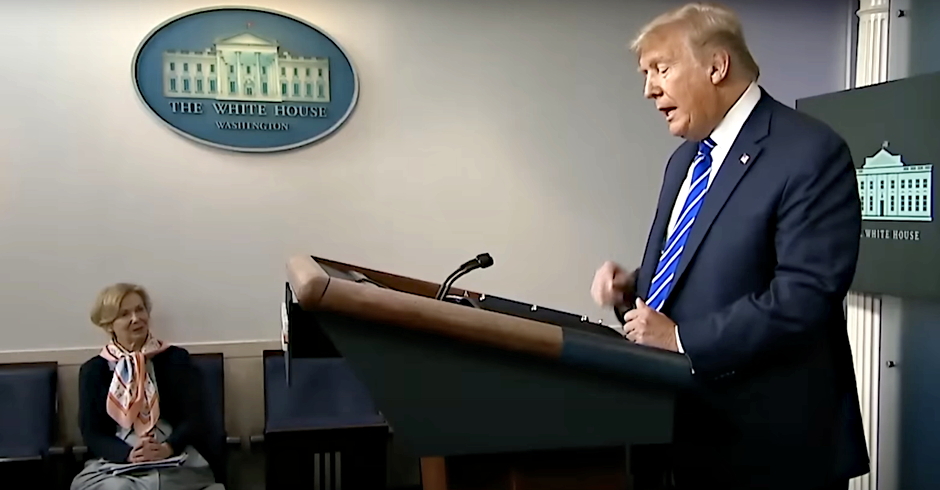The Riddled Death Of Spencer Cox
Chivas Sandage writes a profound tribute to Spencer Cox and challenges us to question why the man who wrote the breakthrough drug trial protocol that saved millions of lives likely died because he didn’t take his medication.
I wanted to write a tribute titled “Didn’t We Get Arrested Together?â€â€”Spencer’s favorite pick-up line—but hit a wall of questions. How could a key activist and spokesman for the pivotal organization ACT UP, a co-founder of the Treatment Action Group, and the director of the HIV Project for TAG—a self-taught “citizen scientist†who passionately fought and won the battle against AIDS for himself and for all of us for almost twenty-five years—so quietly succumb to AIDS-related pneumocystis pneumonia at the age of 44?
If Spencer Cox wrote the controversial, groundbreaking drug trial protocol that saved millions of lives, why would he stop taking the medication that he helped make available and which had already saved him, ultimately gambling with and finally inviting his own death?
Why would key AIDS activist Mark Harrington and others claim that Spencer had returned to using methamphetamines when some of his closest friends counter that’s not true—not the man they knew in his last years?
How could Spencer’s significant contribution to AIDS research—co-designing and personally writing the drug trial for the early protease inhibitor that was approved in only six months, making AIDS no longer a death sentence—go unattributed to him in David France’s recent Academy Award nominated documentary How to Survive a Plague? He’s a handsome face in numerous frames and a felt presence. He has a few lines. The addition of a single brush stroke could have helped define Spencer’s role (and notable character) in a film that understandably focuses on the more prominent activists. In fact, France made a powerful clip of Spencer’s last interview for the documentary available on YouTube and Facebook but it isn’t in the film. That haunting footage is just an outtake. How ironic for a man who had been an actor and playwright to see himself so faintly sketched into the story of his life. After the filming and screenings and parties, how did he feel about having a minor part in his legacy, while he was dying of the disease he so victoriously fought?
After defending his controversial protocol in Barron’s made him, as France says, “briefly, the most-hated AIDS activist in America,†how is it that he came to be considered a friend by thousands in the gay community in addition to friends from college and high school and countless people who never met him in person yet corresponded with him frequently—even daily—on Facebook and other social networking sites?
Even some of those closest to Spencer through the years are struggling to understand the mystery of this brilliant, generous, devilishly quick-witted, charismatic, and complex man’s death. When obits claiming Spencer died of AIDS-related illness were followed by others linking his death to drug addiction and/or not taking prescribed medications, Internet discussions flared. More obits and articles and blog posts about him (and comments on all of the above) continue to roll out. Strangers, fellow activists, colleagues, exes, old friends, mentors, and conservative trolls all have something to say.
 The scroll of his Facebook wall is full with weeks of remembrances, links and photos. In one Bennington-era snapshot, a gorgeous, dark-haired boy wearing a disheveled, untucked, deeply unbuttoned white shirt carries a long-stemmed red rose between his teeth and looks right into you.
The scroll of his Facebook wall is full with weeks of remembrances, links and photos. In one Bennington-era snapshot, a gorgeous, dark-haired boy wearing a disheveled, untucked, deeply unbuttoned white shirt carries a long-stemmed red rose between his teeth and looks right into you.
Follow Spencer’s tracks and you’ll be reminded and/or learn: AIDS is #6 among leading causes of death for Americans between the ages of 25-44; gay and bisexual men of all races account for the majority of those with HIV; Black and Latino communities are significantly and disproportionately affected; half of the 1.1 million who are HIV positive in this country do not have health care; one out of every five people with HIV is unaware they are infected; depression and risk-taking behaviors including substance abuse and unsafe sex amongst middle-aged gay men are all diagnostic symptoms of PTSD.
Spencer was a veteran of the war we don’t call war; he was a hero amongst heroes that are largely unknown to most of the nation. His death makes every bit as much terrible “sense†as my combat photographer father’s death from a “war-related†illness called alcoholism-induced cirrhosis of the liver. Spencer just lasted a little longer than my dad after returning home from the front lines. Combat veterans like Spencer struggle to ever fully return. When you’ve fought that hard and seen the faces of men you love—so many still just sweet-faced boys—collapse around you, one after another, slowly or quickly dying, some in your arms while others live but are never the same again, it changes you.
How can day-to-day life ever compare to the steady, cyclic adrenaline rush of literally fighting for your life and the lives of those around you, or the deep-seated camaraderie of surviving, eating, drinking, and partying with men who you share a bond with like no other you’ve known, or working harder than you know how to, doing work that makes a difference—even makes history. How, after all that, how do you settle and stay settled in the “civilian†life year after year, decade after decade?
 The meetings, support networks, protests, and actions that punctuated Spencer’s days as a younger man simply don’t exist in the same way or to the same degree as they once did. In the minds of many, the AIDS epidemic is supposedly “over.†But we’ve got half a million people taking a handful of relatively expensive drugs every day. And no cure. And no vaccine.
The meetings, support networks, protests, and actions that punctuated Spencer’s days as a younger man simply don’t exist in the same way or to the same degree as they once did. In the minds of many, the AIDS epidemic is supposedly “over.†But we’ve got half a million people taking a handful of relatively expensive drugs every day. And no cure. And no vaccine.
Yes, it appears that what we have is a pharmaceutical dream—continual demand with no end in sight.
The person I most want to ask about Spencer is Spencer. So I went to him—went to his words—looking for clues.
Nothing I’ve read prepared me for what he had to say about his last months.
I happened upon his outed Gawker alias “FrenchTwist40.†About two and a half months before he died, he got caught up in a volley about class issues in America. The article in question was about one percenter Westgate CEO David Siegel who threatened his employees with closure if Obama were to be re-elected. Someone made a random comment about a perceived welfare queen standing in line at the grocery store with six kids supposedly holding IPods. A discussion about benefits and fraud started up. As FrenchTwist40, Spencer challenged the other commenter to “try living on it.†Suddenly, he began to speak very personally:
Look, I have a disabling illness. It won’t last forever, but for the moment I’m stuck with it. And the thing about it is, it’s not constantly disabling. Some days, I’m fine, and get around with no problem. Other days, I’m curled in fetal position in bed the whole day (and more often, several days), racked with pain the whole time. Some days I’m on the subway getting the stink-eye from some old or pregnant lady who clearly wants my seat, and can’t tell just by looking at me that I’m sitting because I’m on my way home from a doctor’s appointment, and if I stand for one more minute, I’m going to fall on the ground.
And the biggest problem in terms of getting work? I don’t know in advance which day is gonna be which. Which makes me an undependable employee. If you saw me on one of the good days, you’d assume I was gaming the system. Why? Because you don’t know what else is going on. And you also don’t know about the choices between things like food and medicine that I’m making. And whenever some zero-tolerance wise-ass decides I need to recertify, that means I have to haul OUT of bed, no matter how sick I am, and go sit for hours in a waiting room, or run all over town trying to collect various papers from doctors, etc., which yes, is often mind-bogglingly awful if, say, it’s a nausea day. So your zero-tolerance for fraud policy? It’s actually a less-than-zero tolerance, because some people simply aren’t going to be able to get through all that. They won’t be able to pull the bullshit together until they’re forced to, when their benefits get cut off, and by then who knows how many days that means without food, medicine, or what penalties for late rent. So MY point is, mind your own damned business. There’s enough oversight that we know fraud is NOT, despite what you say, terribly rampant. And if you’re busy judging someone else’s haul at the checkout, then guess what? Maybe you need another hobby, but you’ve got too much time on your hands.
And P.S. It’s not just YOUR tax dollars going to fund these programs, any more than it’s MY premium dollars going to pay your medical bills whenever you file an insurance claim. I paid taxes for a lot of years in this town to ensure that programs like this WOULD exist for people who need them. I now need them, and feel not the slightest compunction about using them. Nor do I need some busy-body balefully eyeing my grocery cart trying to decide what I deserve and what I don’t. And if you tried to tell me directly, I would quite rightly tell you to mind your own fucking business.
Which is what I’m telling you now. Mind your own fucking business.
Spencer let his opponent have the last word. But his own final comment on the subject reminds me that the name he chose for his organization—“Mediusâ€â€”can be traced back to the Latin for “the middle finger.†Spencer had the ability to give it while being intensely intimate and making himself entirely vulnerable to the kindness—or lack thereof—of strangers.
Perhaps our questions can lead us toward greater understanding and inspired action. I’m also reminded of what he said in his outtake clip about the breakthrough protease inhibitors that have saved the lives of millions: “What I learned from that is that miracles are possible. Miracles happen.”
May Spencer’s death disturb us enough to do something. Something big, like he did. May we find the courage to restart and support the Medius Institute for Gay Men’s Health—the legacy he intended to leave his community and the world. May we break the silence that isolates people living with HIV/AIDS and cultivates depression, feeding PTSD and its myriad symptoms. May we demand universal health care in this nation so that no one has to choose between food and medicine. May we break the silence that still equals death.
If Medius had received the funding it needed and deserved, Spencer might be alive. May his death haunt us long enough that we learn to understand and solve the riddles that killed him, before they kill us.
Editor’s note: This article has been updated to make certain facts clearer.
Image of Spencer Cox (top) courtesy of http://lovemeasiamthebook.com. Other images courtesy of Facebook with the exception of the Bennington-era photo by Debra Eisenstadt Morgen.
 Chivas Sandage’s first book of poems, Hidden Drive (Antrim House, 2012), places Ada with Eve in Eden and explores same-sex marriage and divorce. Her essays and poems on gay marriage have appeared in Ms. Magazine,The Naugatuck River Review, Upstreet, Same-Sex Marriage: The Moral and Legal Debate (Prometheus Books, ‘04) and are forthcoming in Knockout Magazine. Her work has also appeared in Artful Dodge, Drunken Boat, Evergreen Review, Hampshire Life Magazine, The Hartford Courant, Manthology: Poems on the Male Experience (Univ. of Iowa Press, 2006) and Morning Song: Poems for New Parents (St. Martin’s Press, 2011). Sandage holds an MFA from Vermont College of Fine Arts and a BA from Bennington College. She lives in Connecticut with her wife and daughter and blogs at csandage.com.
Chivas Sandage’s first book of poems, Hidden Drive (Antrim House, 2012), places Ada with Eve in Eden and explores same-sex marriage and divorce. Her essays and poems on gay marriage have appeared in Ms. Magazine,The Naugatuck River Review, Upstreet, Same-Sex Marriage: The Moral and Legal Debate (Prometheus Books, ‘04) and are forthcoming in Knockout Magazine. Her work has also appeared in Artful Dodge, Drunken Boat, Evergreen Review, Hampshire Life Magazine, The Hartford Courant, Manthology: Poems on the Male Experience (Univ. of Iowa Press, 2006) and Morning Song: Poems for New Parents (St. Martin’s Press, 2011). Sandage holds an MFA from Vermont College of Fine Arts and a BA from Bennington College. She lives in Connecticut with her wife and daughter and blogs at csandage.com.

Enjoy this piece?
… then let us make a small request. The New Civil Rights Movement depends on readers like you to meet our ongoing expenses and continue producing quality progressive journalism. Three Silicon Valley giants consume 70 percent of all online advertising dollars, so we need your help to continue doing what we do.
NCRM is independent. You won’t find mainstream media bias here. From unflinching coverage of religious extremism, to spotlighting efforts to roll back our rights, NCRM continues to speak truth to power. America needs independent voices like NCRM to be sure no one is forgotten.
Every reader contribution, whatever the amount, makes a tremendous difference. Help ensure NCRM remains independent long into the future. Support progressive journalism with a one-time contribution to NCRM, or click here to become a subscriber. Thank you. Click here to donate by check.
 |
















